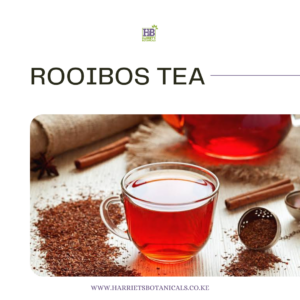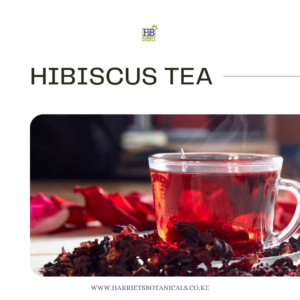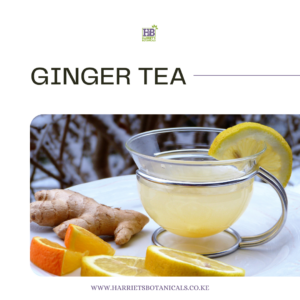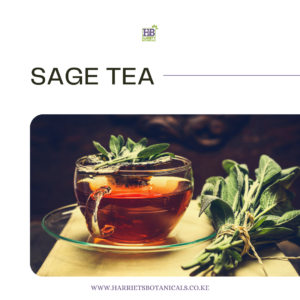Getting The Tea
Herbal tea is a term applied to natural products steeped like tea but not from the Camellia sinensis plant. They are made from plants, flowers, roots, spices and herbs dried to create a wonderful variety of tastes and different health properties. These include chamomile tea, peppermint tea, rooibos tea, lavender tea, hibiscus tea, ginger tea, sage tea and so on. Herbal infusions are a great way to deliver nature’s goodness for a healthy gut microbiome, emotional wellbeing, detoxification and rejuvenation, alkalinity and regenerative sleep. We will now look at different types of herbal teas and the benefits we obtain from them.
Chamomile Tea
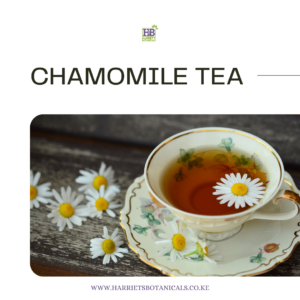
This flower tea has been used for thousands of years for its many health benefits. Synonymous with having a calming effect for a goodnight’s sleep, more meets the eye to this heartwarming herbal tea. It contains a special antioxidant compound called ‘apigenin’ which is believed to have sedative effects hence its popular recommendation before bed. This polyphenol helps create a sense of calm which may reduce stress and reduce anxiety and also has been shown to fight cancer cells, especially those of the breast, digestive tract, skin, prostate and uterus. Its anti-inflammatory effects may protect against diarrhoea, stomach ulcers, nausea and gas perfect for after your meals. This flower tea is a great source of flavone antioxidants that may improve heart health and lower blood sugar levels. Its antispasmodic properties help soothe muscle spasms from stomach cramps from period pain. Do not be quick at disposing of the tea bags; they are great for soothing the skin under your eyes to help reduce puffiness and circles.
Mint Tea
Peppermint, spearmint and mint teas are valued for their incredible medicinal properties and cooling effects. The tea from their leaves is evidenced to relax muscles in your digestive system and improve gas, bloating, constipation, IBS and indigestion. Drinking a hot cup of peppermint tea and inhaling the menthol vapours may help unclog your sinuses and reduce nasal congestion. Its compound rosmarinic acid aids in reducing allergic reactions such as sneezing, itching and a runny nose. The antibacterial properties help to freshen bad breath by washing away the bacteria in your mouth. As a natural painkiller, this tea can help relax tense cranial muscles and relieve pain from headaches as well as menstrual cramping. This sugar-free drink may help satisfy your sweet tooth and reduce your appetite that aids in weight loss and is very easy to add to your diet. It is enjoyed at any time of the day for a caffeine-free boost and improved alertness.
Rooibos Tea
This popular South African brew is a brilliant alternative to black and green tea and without the caffeine and is made using leaves from a shrub called Aspalathus linearis. Also known as red bush tea, it is rich in antioxidants aspalathin and quercetin that may help protect cells from damage by free radicals and reduce your risk of illnesses, such as heart disease and cancer. This gentle tea supports heart health by positively affecting blood pressure. It may also lower LDL cholesterol (bad) and raise HDL cholesterol (good) in those at risk of heart disease. Although in significantly low quantities, the antioxidants quercetin and luteolin, present in rooibos tea, can kill cancer cells and prevent tumour growth. There is also evidence that this tea may have anti-diabetic effects due to the unique antioxidant aspalathin by balancing blood sugar levels and reducing insulin resistance. Rooibos tea is valued by generations for its goodness and provides gentle hydrating properties. Certain compounds in the tea can stimulate the production of the female sex hormone, estrogen and should be taken with precaution by people with hormone-sensitive conditions.
Lavender Tea
The lavender flower has a long history in herbal medicine. Besides its beautiful colour and fragrance, it is known for its soothing, calming and aromatic properties. The tea from its steeped buds does not fall short. This multipurpose plant promotes good health and well-being. Try a night-time cup to unwind for better sleep quality as the soft floral notes relax you. The tea may help calm nerves and decrease feelings of anxiety, depression and fatigue. In addition to the oil that provides a lovely aroma and an effective topical treatment, the tea may help with menstrual cramping by soothing the muscles affected during your period. The anti-inflammatory and anti-bacterial effects may improve your skin quality and hydrate your body for overall good health.
Hibiscus Tea
This tart-tasting rich red tea is made by steeping dried parts of the hibiscus flower in hot water. It is popular in many African countries for its numerous benefits. That includes its effect on cooling down the body in hot weather. Hibiscus tea is rich in powerful antioxidants and may help prevent damage and disease, like heart disease, caused by the buildup of free radicals. It is high in polyphenols that possess powerful anti-cancer properties especially effective against mouth and plasma cell cancers. It is a safe and natural way to reduce blood pressure and should be taken in consultation by a doctor in case of any drug interaction with certain medicines for this specific reason. Decreasing LDL cholesterol (bad) is vital for a healthy heart and body. Hibiscus tea may help with this and increase“good” HDL cholesterol and aid in weight loss. This phenomenal tea contains liver-protecting properties that have shown decreased markers of liver damage and promote liver health and function. It provides antioxidants and properties that could help fight bacterial infections. Drink it hot or cold with honey for extra sweetness.
Ginger Tea
The highest recommendation for nausea relief is ginger and its tea. This warm spicy stem and root are used widely in different cuisines to add a kick and punch of flavour and for a myriad of health benefits. Steeping it sliced or grated in hot water with some lemon and honey (Dawa) is a highly favoured remedy for inflamed respiratory conditions such as colds, flu, fever and sore throat. Ginger tea is an antioxidant-rich healing tonic that may offer a preventative effect from certain cancers. If you suffer from motion sickness, ginger tea may ease symptoms like dizziness, vomiting, and cold sweats. The volatile oils and phenol compounds called gingerols help relieve nausea caused by pregnancy, chemotherapy, or surgery safely and naturally. Consuming this tea daily may boost your heart health by lowering blood pressure, preventing heart attacks and blood clots, relieving heartburn, lowering your cholesterol and improving blood circulation. Ginger tea is also great for lowering blood sugar and can be especially beneficial to people with diabetes. Used to reduce inflammation for centuries, ginger tea helps alleviate headaches, menstrual cramps, sore muscles, and other types of pain. It is easy to make and can be taken at any time of day. Ginger tea should be consumed in moderation by those with low blood pressure or on blood pressure medication.
Sage Tea
Wise as a sage, this herb has many uses and having it as a tea is a perfect way to gain the benefits. We start with the benefits that support women’s health; drinking sage tea helps treat nausea in pregnant women and reduce breast milk production in women who are weaning or have an overabundant supply. It may reduce hot flashes in menopausal women. It is rich in anti-inflammatory and antioxidant compounds such as rosmarinic acid that helps prevent chronic diseases decreases inflammation and blood sugar levels. It also improves bone health, circulation, and proper blood clotting with its high levels of vitamin K. The camphor and carnosol found in this tea can help prevent skin damage, protect it from fungi and bacteria and promote wound healing. Gargling sage tea may relieve oral pain and inflammation and stimulate good breath. Its rich plant compounds can kill several kinds of cancer cells without affecting healthy cells and may prevent or treat type 2 diabetes by reducing blood sugar levels. It works wonders for brain health by boosting mood, improving memory, and helps to prevent disorders like Alzheimer’s. Sage tea is safe in moderate amounts – one or two cups a day will provide you with all these benefits and more.
Other Herbal Teas
- Valerian root tea is valued for its mild sedative effect and is a natural sleep aid.
- Lemon balm tea helps with anxiety and stress and can help ease insomnia and other sleep disorders.
- Nettle leaf tea helps boost the immune system and may aid in treating enlarged prostate in men.
- Fennel seed tea promotes a happy and healthy digestive system is essential for a good night’s sleep.
- Aloe vera and baobab tea are naturally alkalising to help neutralise acidity and balance the system.
- Lemongrass is a fragrant tea known as a soothing anti-inflammatory and beneficial for the digestive system.
- Loquat leaf tea soothes gastrointestinal ailments, relieves coughs and congestion and lowers blood sugars.
- Rose tea has anti-inflammatory properties and high vitamin C, vital to our body’s healing process and immunity.



